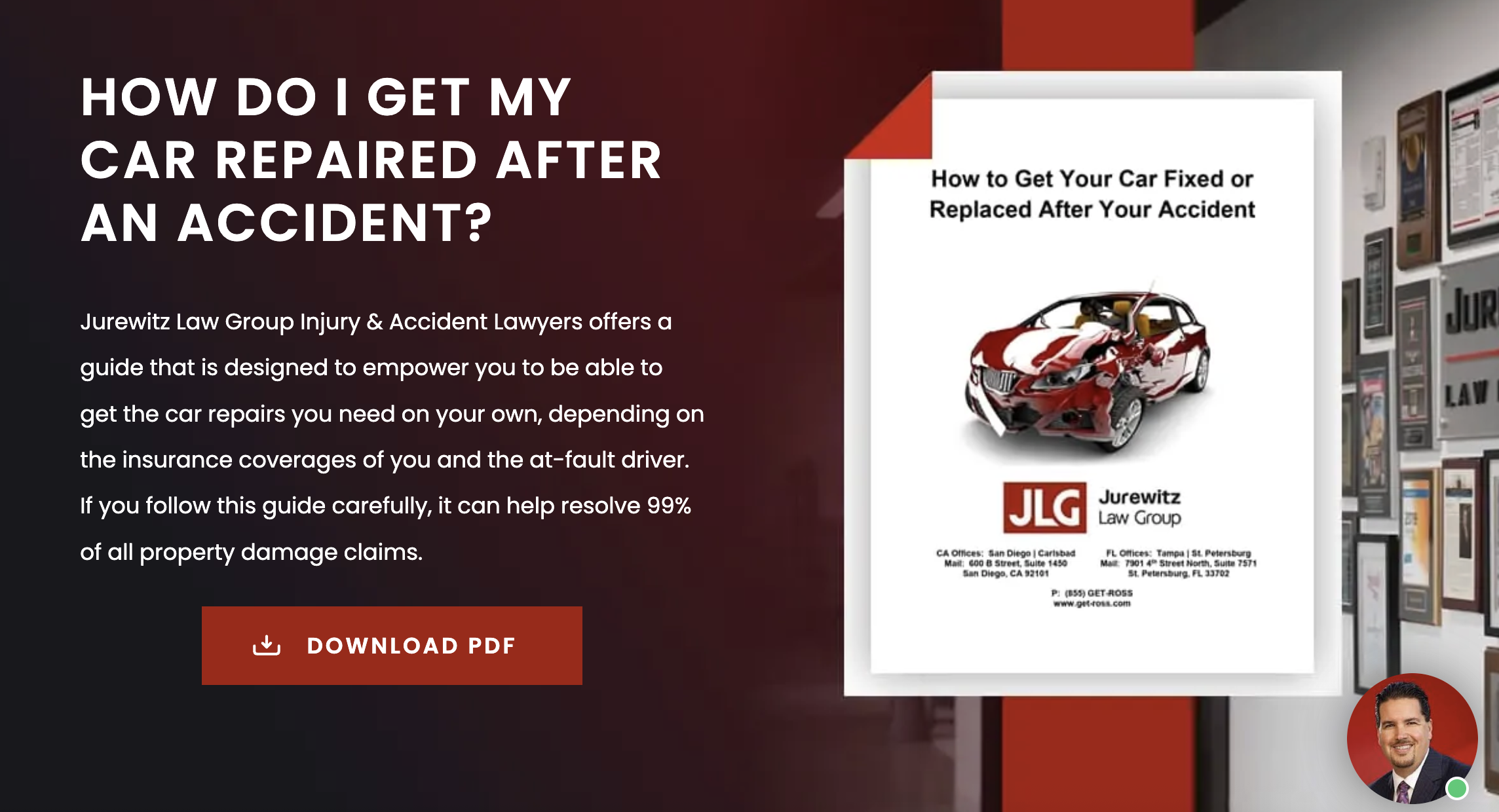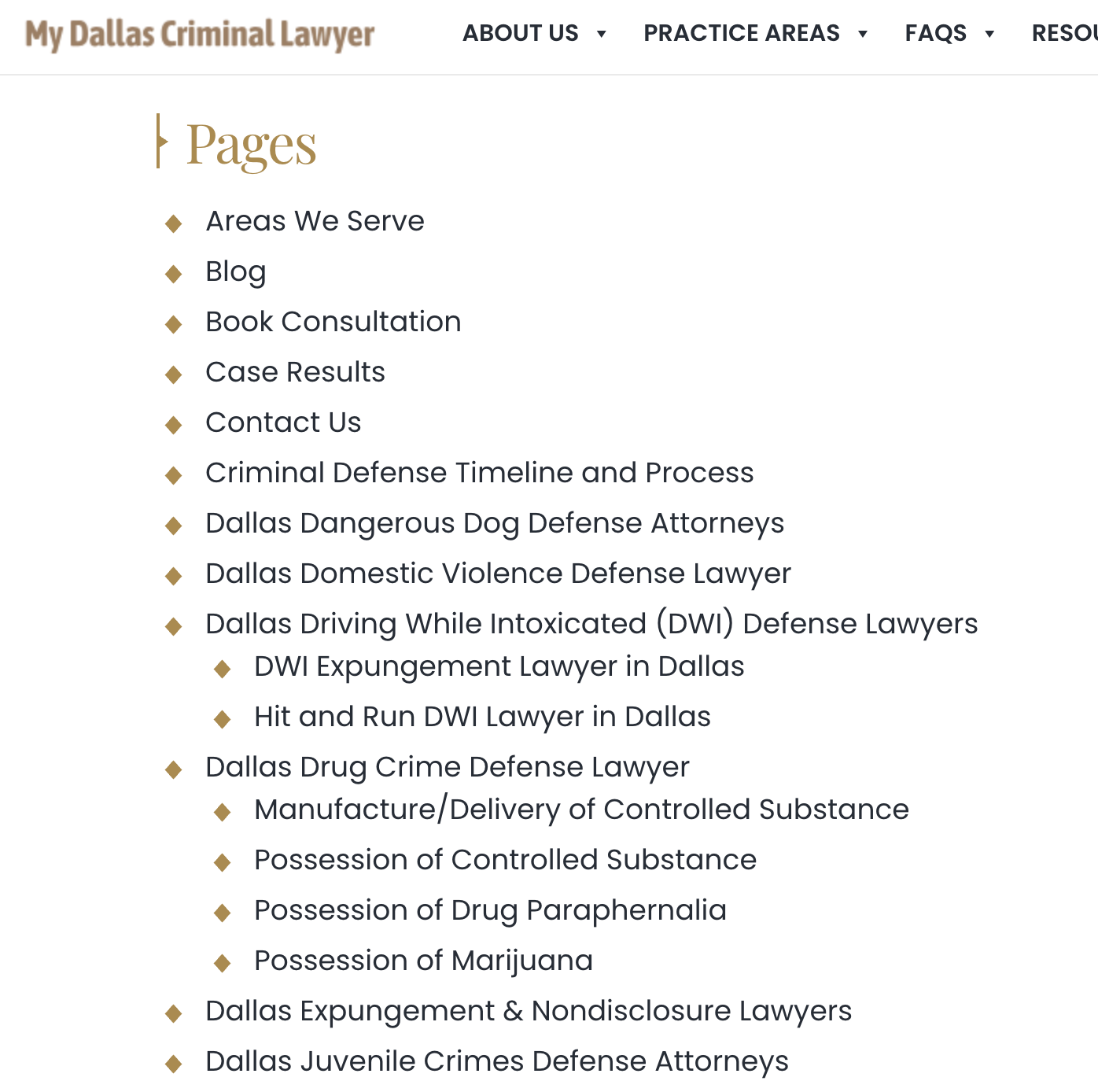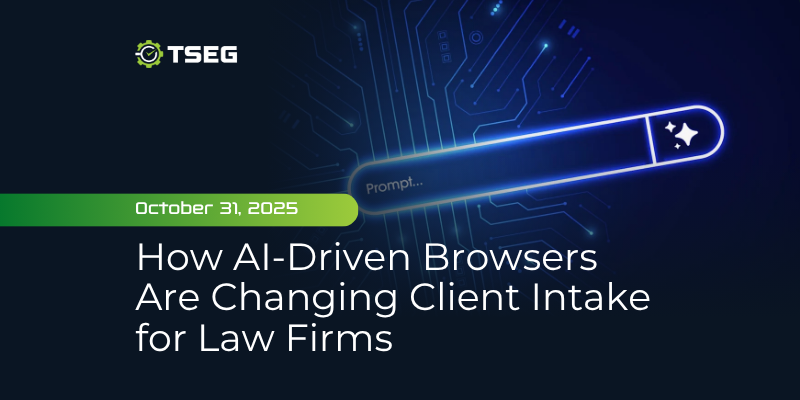How AI-Driven Browsers Are Changing Client Intake for Law Firms
Posted on Friday, October 31st, 2025 at 6:47 pm
When Your Browser Starts Making Decisions
Agentic browsers interpret your visited website content, understand and carry context through sessions, and can take action on your part. They can convert for a person. That includes filling out forms, scheduling consultations, or recommending one law firm over another.
Comet by Perplexity is already positioning itself as an AI-first browser. ChatGPT Atlas adds task execution to the browsing process. Google is embedding Gemini into Chrome to bring AI summaries and workflows directly into the interface.
Once these tools become common, users will rely less on navigating to your website. What gets surfaced is based on whether the browser understands your content and trusts it enough to act on it.
If your website and digital content isn’t optimized, it may never make it into the decision process.
How AI Browsers Will Change Legal Client Acquisition
When browsers begin to act on behalf of users, the digital path between search and conversion gets shorter. That changes how legal clients discover firms, what content gets surfaced, and how intake gets triggered.
Search Is No Longer the Starting Point
Agentic browsers don’t rely on search result pages the same way people do. They pull answers from content and present one recommended outcome. That removes the advantage of just ranking well. The firm that gets selected is the one with content structured for fast decisions. Visibility depends on how well the browser understands and trusts your material, not how many clicks it gets.
Clarity Matters More Than Word Count
AI tools scan for structured content, clear summaries, and step-by-step information. Long pages without headers, metadata, or task-oriented language are harder for browsers to parse. If a browser can’t extract a direct answer from your page, it won’t use it. Your best-performing pages will be the ones designed for both humans and machines.
Here is a good example of clear and concise headings:

Your Intake System Needs to Be Machine-Readable
Agentic browsers may initiate tasks like form completions or consultation scheduling. If your site doesn’t work with AI APIs or structured formats AI understands, it will prefer other websites over yours. To stay in the flow, your intake systems need to support direct interaction. That includes availability details, locations, and response times that the browser can use to guide the session.
Traditional Metrics Will Miss the Full Picture
If a browser completes a contact form without ever loading your page in the traditional sense, analytics tools may not register the visit. Legal marketers will need to track agent-initiated events, not just human clicks. This calls for new tracking models that account for interactions happening within the browser environment, not just on the site.
What Legal Marketers Should Be Doing Today
The window to prepare for agentic browsing is open now, but it won’t stay that way for long. Start by reviewing the content that drives the most qualified traffic. Add clear headings, short summaries, and task-based snippets that an AI system can extract without confusion. Every page should contain information that stands on its own when pulled out of context.
Next, focus on machine-readable signals. Schema markup, updated sitemaps (example below), and accurate metadata aren’t optional anymore. If your firm serves clients across different locations or practice areas, make those distinctions easy for a browser to interpret. Structured data helps these tools select and summarize your services without error.
You should also map out how a typical client might reach your firm through an AI-led flow. In many cases, they’ll never touch your homepage. If your intake forms, contact options, or scheduling tools aren’t accessible from the browser, the client may never reach you. That gap needs to be closed.
Begin testing small changes now. Pick a few high-value pages and rework them for AI compatibility. Look for changes in how those pages are surfaced in AI-generated responses. When new pilot programs or integrations with agentic browsers become available, participate early. The feedback you gather now will be far more valuable than waiting until client volume starts dropping without explanation.
The Speed of Change Isn’t New
Every major browser upgrade has happened faster than most businesses expected. When Google launched Chrome in 2008, it gained meaningful market share within one year. By 2012, it had overtaken Internet Explorer. Firefox did the same earlier in the 2000s, moving from zero to double-digit share in less than a year. These weren’t gradual changes. They were abrupt and visible in the data.
Agentic browsers are following the same pattern. Comet and Atlas are already in public hands. Google is baking Gemini into Chrome and Search. Each release improves task performance and user experience. If even a small percentage of users adopt these tools in the next two years, the impact on search visibility and client acquisition will be significant. Legal marketers who treat this as a future problem will be reacting after referrals and online leads start declining.
Make It Easy for Machines to Choose You
Agentic browsers won’t remove the need for marketing, but they are changing how decisions get made. Content that isn’t structured, verified, or clearly sourced will be skipped. Pages that provide concise, trusted answers will be selected, summarized, and acted on.
This is the moment to treat agent-directed traffic as its own channel. Start measuring how your content performs when AI is the one doing the reading. Track what gets surfaced, what gets ignored, and what results in an actual intake action. The firms that formalize this process early will gain an advantage long before others realize why their lead volume has changed.
TSEG works with law firms to ensure their content, systems, and strategy are built for what’s next. From structured data to optimized content models, we help firms stay visible as the tools that drive client decisions change and adapt. If your content isn’t ready to be picked by an agent, it won’t be picked at all. Now is the time to change that. Contact TSEG today.
